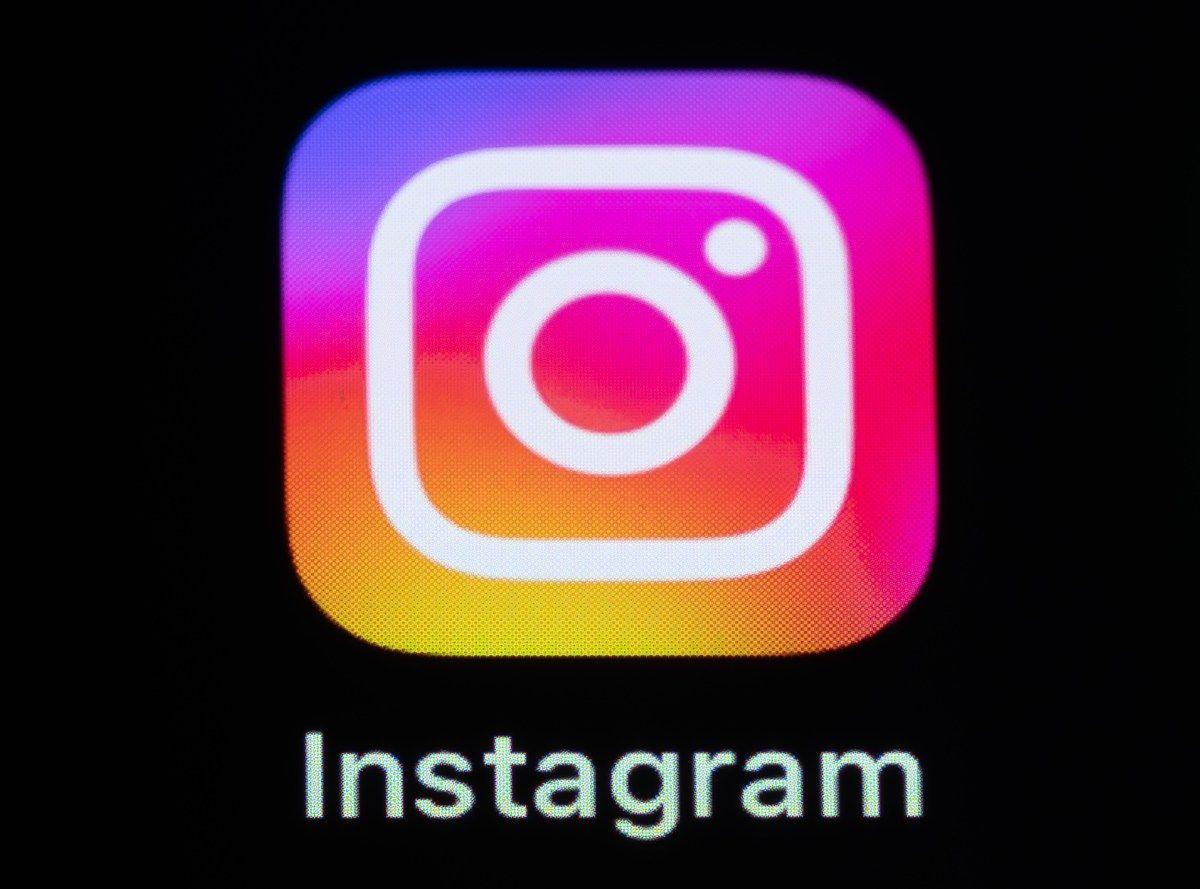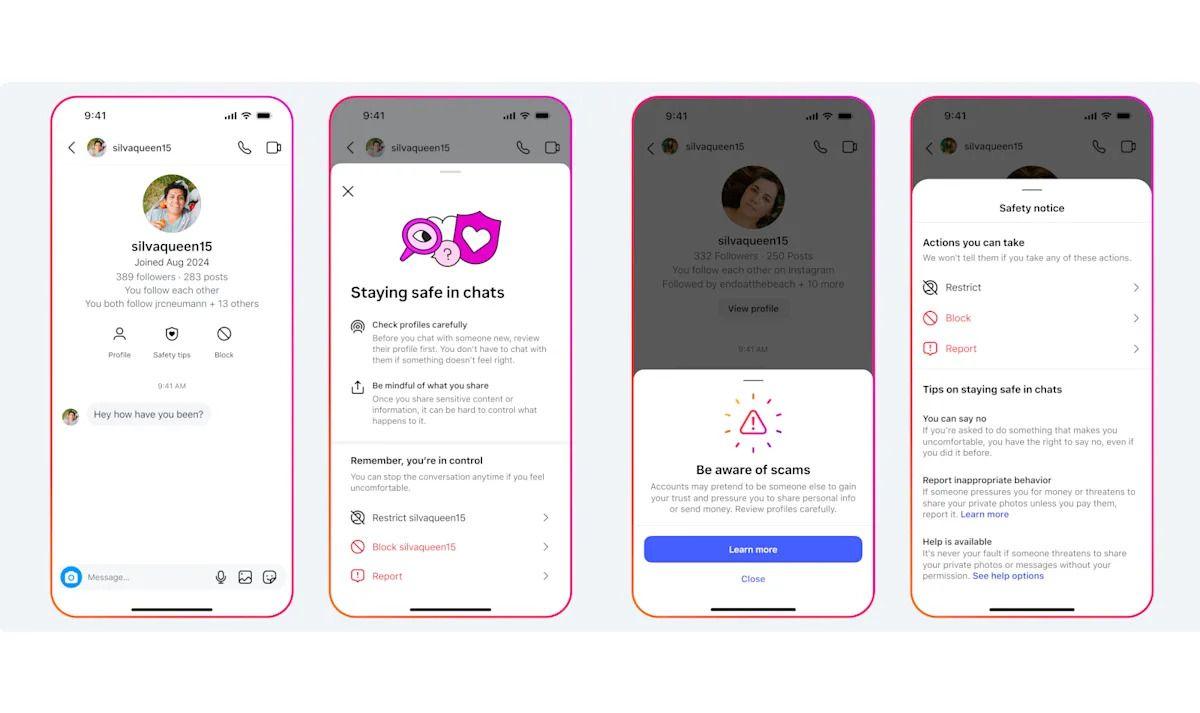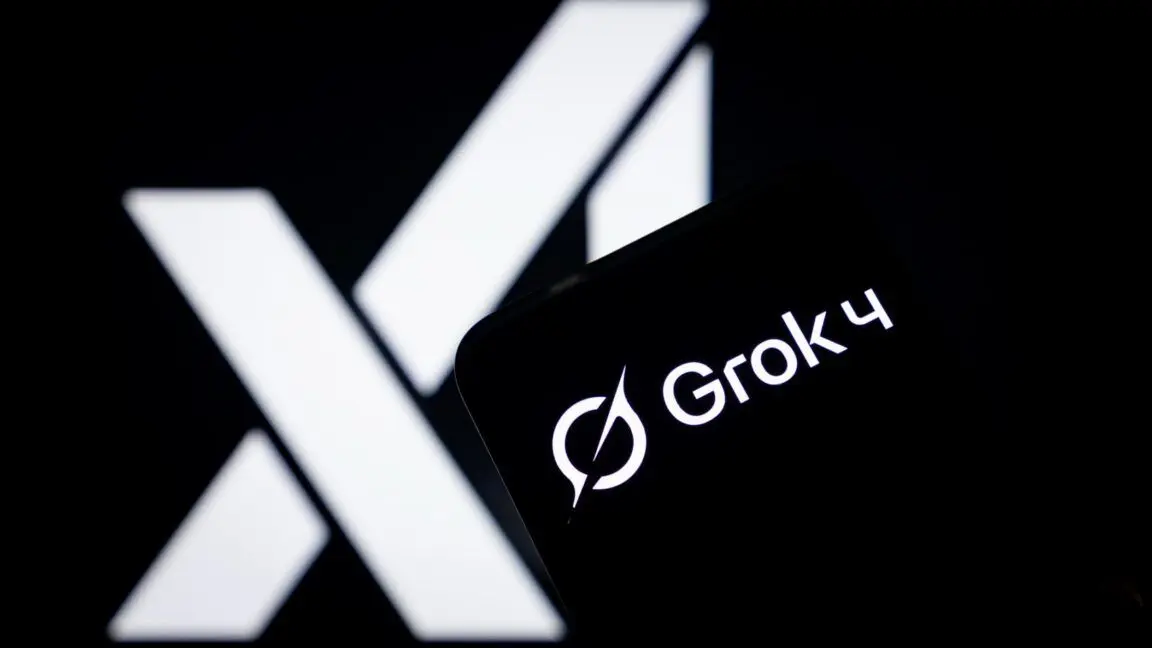Instagram to Deploy AI for Age Verification and Teen Account Management
8 Sources
8 Sources
[1]
Instagram to use AI to catch teenagers who lie about their age - BBC Bitesize
Meta, the company that owns Facebook and Instagram, is going to start using AI to identify teenagers who are lying about their age on Instagram, and automatically move them into teen accounts. Instagram is introducing a software tool called an 'adult classifier' early next year that will use profile account data to categorise users into two age groups - older or younger than 18. The software will look at information such as the user's follower list, the content they interact with and 'happy birthday' posts from friends, and use this to predict their age. If the software suspects that the user is under 18, they will be automatically placed into a teen account - regardless of how old they claim to be on their profile. This latest update follows new safety features introduced earlier this year to provide greater protection for young people who use the platform. Other new developments include introducing facial recognition technology to both combat scam celebrity adverts and to allow people to unlock their social media accounts, as well as lowering the quality of older, less popular content on Instagram. 'Celeb-bait' refers to fraudulent ads featuring AI-generated images or videos of celebrities that are used by scammers to trick people out of money. Meta already uses AI to review ads but is introducing facial recognition tech that will compare images from ads flagged as suspicious with the celebrities' social media profile pics. If the image is confirmed as a match and the ad is a scam, then it will be automatically deleted. Deepfake technology has allowed these adverts to become more believable in recent years, putting Meta under pressure to do more about removing them. Facial recognition tech is also being tested as a way of proving a user's identity in order to gain access to a locked Instagram or Facebook account - the current process involves uploading official ID or documents. Using facial recognition in this way is controversial as it causes issues around privacy and accuracy. However, Meta has said that as part of the new test, video selfies will be encrypted and stored securely while any facial data generated will be deleted after the check. The system hasn't yet been tested in the UK or EU.
[2]
Instagram will use AI to detect teenagers who lie about their age: be careful about lying - Softonic
It's over for minors sneaking into Instagram: the new police is called artificial intelligence According to a new Bloomberg report, Meta will use artificial intelligence to predict the age of its Instagram users and automatically transfer those under 18 to a teen account if it believes they are lying about their age. In the wake of international protests about the impact of social media platforms like Instagram and Facebook on the mental health of teenagers, Meta introduced accounts for teenagers in September. Teen accounts, for children aged 13 to 17, have built-in limits on who can contact them and what content they can see. They are automatically set to hide potentially offensive comments and message requests. Secure accounts for teenagers will only work if those under 18 voluntarily choose to use them or are honest about their age, which is why Meta has devised a way to enforce the appropriate accounts. The patented computer tool that Meta has developed, called the "adult classifier," will come into play next year and is designed to classify users into two groups: under or over 18 years old. According to Allison Hartnet, director of youth product management and social impact at Meta, the tool will scan a user's profile, the content they interact with, and their follower list to determine their age. Even innocuous "happy birthday" messages can be used to determine a user's true age. Since teen accounts are new and currently voluntary, there is a large base of teenage users on Instagram who use regular adult accounts. Meta plans to start moving teenagers who have voluntarily provided their age information to the new teen accounts very soon and introduce the "adult classifier" early next year. This is Meta's latest attempt to address some of the public outcry over the impact of social media on teenagers. In 2021, a report published in the Wall Street Journal showed that Meta's reports indicated it knew Instagram was harmful to teenagers' mental health, especially for teenage girls.
[3]
This is how Meta will use AI to identify young people who lie about their age on Instagram - Softonic
Meta has provided more details about its upcoming artificial intelligence tool that will help identify teenagers who falsify their age on Instagram. According to Bloomberg, this feature, called the "adult classifier," will automatically apply more restrictive privacy settings to users under 18 years old. The company plans to launch this tool early next year, with the aim of providing a safer online environment for young people. According to Allison Hartnett, director of product management for youth and social impact at the company, the software will analyze aspects such as the accounts a user follows and the type of content they interact with. If the tool suspects that a profile belongs to a minor, it will automatically be moved to a teen account, regardless of the age the user has registered. Meta launched teen accounts in September, which limit certain features for users under 16 years old. These accounts are automatically set to private and, for example, restrict sending messages to strangers. Additionally, teenagers cannot modify these settings without parental approval, a measure aimed at preventing unwanted interactions. Meta has not yet specified the accuracy of the tool in identifying ages, but plans to implement a system of appeal for those who are misclassified. The company will allow teenagers to verify their identity by uploading an official document or using a video selfie with Yoti, a system that estimates age based on facial features and then deletes the content. This new Meta tool is part of a broader plan to prevent teenagers from falsifying their age. Among the planned measures are the use of device identifiers and the review of accounts created with emails already linked to previous profiles. The measures come months after Europe investigated Instagram and Facebook after considering that they are not doing enough to protect the mental and physical health of minors.
[4]
Instagram to use AI to catch teens lying about their age and automatically move them to restricted accounts
Meta will begin moving teens automatically to its new accounts According to a new Bloomberg report, Meta is set to use AI to predict the age of its Instagram users and automatically transfer anybody under 18 to a teen account, if it believes they are lying about their age. In the wake of national outcry about the impact of social media platforms like Instagram and Facebook on the mental health of teenagers, Meta introduced teen accounts in September. Teen accounts, for children aged 13-17, have built-in limits on who can contact them, and what content they can see. They are automatically set to hide potentially offensive comments and message requests. Secure accounts for teenagers will only work if those under 18 volunteer to use them or are honest about their ages, which is why Meta has devised a way of enforcing the appropriate accounts. The proprietary software tool Meta has developed, called 'adult classifier', will come into play next year and is designed to classify users into two groups: under or over 18 years of age. According to Allison Hartnet, Meta's director of product management for youth and social impact, the tool will scan a user's profile, what content they interact with, and their follower list to determine their age. Even innocuous "happy birthday" messages can be used to help determine a user's true age. Since teen accounts are new and currently voluntary there's a large user base of teens on Instagram who are using regular adult accounts. Meta plans to start moving teens who have volunteered their age information onto the new teen accounts very soon, and introducing the 'adult classifier' early next year. The move is Meta's latest attempt to redress some of the public outcry over the effect of social media on teens. In 2021 a report published in the Wall Street Journal showed that Meta's reports indicated that it knew Instagram was harmful to the mental health of teenagers, especially teenage girls. "We make body image issues worse for one in three teen girls," said one slide from Meta's own report from 2019.
[5]
Instagram Plans to Use AI to Catch Teens Lying About Age
Meta Platforms Inc., under fire from parents and lawmakers over its impact on teens' mental health, plans to use artificial intelligence to identify young users on Instagram who are lying about their age and automatically switch them into more restrictive privacy settings. With a proprietary software tool it calls an "adult classifier," Meta will categorize users into two age brackets -- older or younger than 18 -- based on the person's own account data, according to Allison Hartnett, Meta's director of product management for youth and social impact. The software can sift through a user's profile, see their follower list and what content they interact with, and will even scan unsuspecting "happy birthday" posts made by friends to predict a user's age.
[6]
Meta details 'adult classifier' tool for catching teens who lie about their age on Instagram
Meta has shared more information about how it plans to use AI to catch teens who lie about their age on Instagram. As first reported by Bloomberg, early next year, the company will deploy "adult classifier," a tool it says will identify users who are younger than 18 and automatically apply Instagram's more restrictive privacy settings to them. According to Allison Hartnett, Meta's director of product management for youth and social impact, the software will look at indicators like the accounts a user follows and the content they interact with regularly. If the tool suspects someone is under 18, it will move them to a teen account, regardless of what age they claim to be on their profile. Meta did not immediately respond to Engadget's request for comment. Meta first said it would use AI to identify young users who had lied about their age when it began rolling out teen accounts in September. With those accounts, the company automatically applies Instagram's most stringent privacy settings to kids younger than 16. For instance, the accounts are automatically set to private, and they can't message strangers. Facing pressure from lawmakers and parents, Meta had already been applying many of those restrictions to underage users before the rollout of teen accounts, but with the official launch of the feature, the company made it so that teens cannot change those settings without approval from a parent. On Monday, the company didn't disclose how accurate the adult classifier tool is at determining a person's age. Meta told Bloomberg it would eventually give people who are wrongly identified by the software the ability to appeal, though the social media giant is still working out what that process will look like. The company will prompt teens who attempt to manually change the age listed on their account to prove their identity. Users will have the option of either uploading an official government-issued ID or sharing a video selfie to Yoti. Meta previously partnered with Yoti to bring age verification to Facebook dating. The company's machine learning algorithm estimates a person's age based on their facial features. Once Yoti shares its estimate with Meta, they both delete the video. The adult classifier software is part of broader effort by Meta to make it more difficult for people to lie about their age on Instagram. Separately, the company plans to flag teens who attempt to create a new account using an email address that's already associated with an existing account and a different birthday. It also plans to use device IDs to get a better picture of who is creating a new profile. Meta, alongside Google and TikTok owner ByteDance, recently failed to convince a US federal judge to dismiss a series of lawsuits alleging the companies failed to adequately protect their young users from the harmful and addictive effects of social media use.
[7]
Meta's Upcoming AI Tool Will Stop Teens from Pretending to Be Adults
Once a user is identified as under 18, they are automatically placed into the teen accounts experience. Meta has been buckling up to guard the online safety of teenagers on Instagram and Facebook. After introducing teen accounts and even giving Instagram new powers to combat sextortion, Meta has now shifted its focus to eradicating the problem at its very root. Meta is now working on an AI-powered Adult Classifier tool that can stop such people from lying about their age. Right now, it's very easy to lie about your age and have a younger or older online persona. Due to this, those under 18 years of age can easily add years and join the less-restricted side of Instagram. Bloomberg reports that Meta is working on utilizing an AI-powered adult classifier tool to identify such users and stop them dead in their tracks. Additionally, Allison Hartnett, Meta's director of product management for youth and social impact, said that regardless of how old a user claims to be on his or her social media profile, the user will be placed into the more protective teen accounts experience. This new step towards further strengthening the privacy and security of teenagers on social media comes from Meta being under fire for allegedly getting such users hooked to social media. In addition, Meta is also being targeted by parents whose children have taken to drugs and passed away due to social media consumption. Meta's new AI tool is more well-thought-out than you may think. It will flag teenagers who are creating a new account using the same email address but with a modified birthdate. Moreover, the company will also be able to see the unique device ID that's carrying out such actions to further pinpoint the users behind it. Teenagers who try to manually increase their age will need to submit formal identification to get past the restriction. Alternatively, they can send a video selfie to Yoti, a service that can identify age based on facial features. Post verification, both Yoti and Meta will delete the images. Meta also talked about a previous option for teenagers that let their friends vouch for them. But it doesn't exist anymore, for obvious reasons. But, what if the AI adult classifier tool wrongfully flags someone? Well, turns out, they "may" be able to appeal and get rid of the teen account status. However, according to a Meta representative, that's under development right now. In this very instant, Meta's primary focus is to improve the accuracy of this classifier. However, there are no more details on that. As a result, such users will need to verify their age before downloading certain apps, and understandably, it's not good news for Apple's App Store or Google's Play Store. If you ask me, this should have been the case all along. Given how endless the internet is, there are creeps lurking around every corner. Catfishers can easily target teenagers and younger individuals, making these guardrails essential. It's alarming how easy it is to create an account on any platform by using the wrong birthdate. So, I'll welcome this with the widest possible arms. While there are no exact dates on when it arrives, we can hope for it to make it by next year. What about you? What do you think about Meta's possible upcoming AI adult classifier tool? Drop your thoughts in the comments down below!
[8]
Instagram's 'Adult Classifier' AI Flags Minors Using Adult Accounts
Disclaimer: This content generated by AI & may have errors or hallucinations. Edit before use. Read our Terms of use Instagram is planning to release an Artificial Intelligence (AI) tool that can detect when a minor is lying about their age, reported Bloomberg. Called 'adult classifier,' the system will go through a user's profile and determine their age based on their follower list, content they interact with and even 'happy birthday' posts made by friends. Users detected as below 18 will automatically be slotted into a more restrictive version of the app, regardless of how old they claimed to be. Meta had announced 'teen accounts' for Instagram in September 2024, which featured greater restrictions for users. Teen accounts are private by default, limit messaging and interactions, display set time reminders, and allow parents to control the settings of their child's account and monitor who they interact with. The social media giant has also announced other measures to identify people's age. In one, users will have to verify their age with an ID if they change their birth date. Users can also confirm their age through a method called 'social vouching' wherein three of the user's followers can vouch that they are 18. The followers must be at least 18 years old and must not be vouching for anyone else at that time. Meta also collaborated with tech firm Yoti to allow users to verify their age with video selfies. Meta has been facing immense regulatory and media pressure over the impact of its platforms on teen users. The New York Times reported how Meta received over 1.1 million reports of under-age users on Instagram since early 2019 but disabled only a fraction of those accounts. The Wall Street Journal had reported in 2021 that Meta was aware that large number of teenagers, particularly teenage girls, trace a significant amount of anxiety and mental health problems to Instagram. Following this, 33 US states filed a lawsuit against Meta in 2023 for knowingly designing and deploying harmful features on Instagram and other social media platforms that make children and teens addicted to them. The lawsuit also questioned it for its non-compliance with the Children's Online Privacy Protection Act of 1998 (COPPA), alleging that Facebook and Instagram, process children's data without parental consent. Meta is also facing a lawsuit in the state of New Mexico, under the allegation that it knowingly exposed children to the twin dangers of sexual exploitation and mental health harm. The European Commission has also sought information on how Meta protects children from harmful content.
Share
Share
Copy Link
Meta plans to use AI to identify underage users on Instagram and automatically move them to teen accounts with enhanced privacy settings, addressing concerns about social media's impact on youth mental health.

Meta's AI-Powered Age Verification for Instagram
Meta, the parent company of Instagram and Facebook, is set to implement an artificial intelligence system to identify and manage underage users on Instagram. This move comes in response to growing concerns about the impact of social media on teenagers' mental health
1
2
.The 'Adult Classifier' Tool
Early next year, Meta plans to introduce a proprietary software tool called the 'adult classifier'. This AI-powered system will categorize users into two age groups: under 18 and over 18
3
. The tool will analyze various data points to determine a user's age, including:- Profile information
- Content interactions
- Follower lists
- "Happy birthday" posts from friends
If the AI suspects a user is under 18, it will automatically transfer them to a teen account, regardless of the age stated in their profile
4
.Teen Accounts and Enhanced Privacy Settings
Meta introduced teen accounts in September for users aged 13-17. These accounts feature built-in restrictions designed to provide a safer online environment for young users
2
. Key features include:- Limits on who can contact the user
- Restrictions on visible content
- Automatic hiding of potentially offensive comments
- Filtered message requests
The company plans to start moving teenagers who have voluntarily provided their age information to these new accounts soon, with the 'adult classifier' implementation following early next year
5
.Addressing Mental Health Concerns
This initiative is part of Meta's broader efforts to address public outcry over the impact of social media on teenage mental health. In 2021, a Wall Street Journal report revealed that Meta's internal research indicated Instagram was harmful to the mental health of teenagers, particularly teenage girls
5
.Related Stories
Additional AI Applications and Privacy Measures
Meta is also exploring other AI applications to enhance user safety and account security:
- Facial recognition technology to combat scam celebrity advertisements ('celeb-bait')
1
. - AI-powered ad review systems to detect and remove fraudulent content
1
. - Facial recognition for account recovery, although this raises privacy concerns
1
.
To address privacy issues, Meta states that video selfies used for identity verification will be encrypted, securely stored, and deleted after the check
1
.Challenges and Limitations
While the new AI system aims to improve user safety, several challenges remain:
- Accuracy of age prediction
- Privacy concerns related to data analysis
- Potential for misclassification
Meta plans to implement an appeal system for users who believe they have been incorrectly classified
3
. The company will also allow teenagers to verify their identity by uploading official documents or using a video selfie with Yoti, a system that estimates age based on facial features3
.As social media platforms continue to navigate the complex landscape of user safety and privacy, Meta's AI-driven approach to age verification represents a significant step in addressing concerns about the well-being of young users on Instagram.
References
Summarized by
Navi
[2]
[3]
[4]
Related Stories
Instagram Deploys AI to Detect and Restrict Teen Accounts Masquerading as Adults
21 Apr 2025•Technology

Instagram Implements Mandatory Privacy Settings and Parental Controls for Teen Accounts
17 Sept 2024

Instagram Implements PG-13 Filters for Teen Accounts in Major Safety Update
14 Oct 2025•Entertainment and Society

Recent Highlights
1
ByteDance Faces Hollywood Backlash After Seedance 2.0 Creates Unauthorized Celebrity Deepfakes
Technology

2
Microsoft AI chief predicts artificial intelligence will automate most white-collar jobs in 18 months
Business and Economy

3
Google reports state-sponsored hackers exploit Gemini AI across all stages of cyberattacks
Technology





